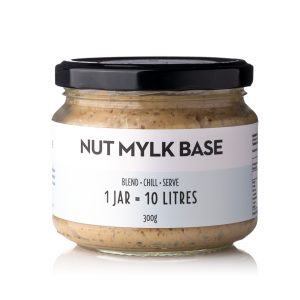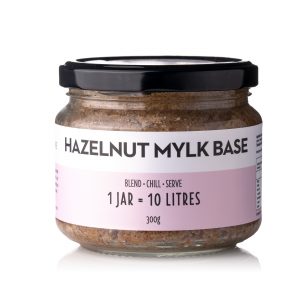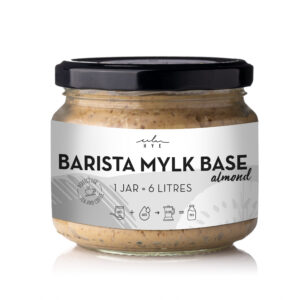Throughout my experience as a naturopath, in private practice, working in health food stores and engaging in conversations with strangers about naturopathy, the most common question I am consistently asked is “Why am i so bloated?”. The number of people who would talk to me about their digestive complaints and being so bloated they look pregnant is astonishing. What is going on?! How is it that so many people suffer from gut problems? Is it what they’re eating? How they’re eating it? What they’re feeling when they eat it? My opinion is that it is all of the above.
Background
During my early days of college, one of the first things we were taught was to treat the gut before treating anything else. Heal the gut, and the rest will follow. In my previous article I spoke about our body being one entity, I’m now going to delve deeper in to this.
In a geographical sense, our digestive system is located smack bang in the centre of our body. It is our core. By definition; a core is part of something that is central to its existence or character. Our gut is central to our existence although most people just associate their gut with the process of digestion.
Did you know that our immune system lies within our gut? Therefore, all conditions associated with the immune system are heavily dependent on the health of your gut. These include; allergies, eczema and all auto-immune related conditions.
Are you aware that pain and inflammation is an immune response? This means that the degree of pain you experience with arthritis or joint pain is dependent on the health of your gut.
Neurotransmitters that are found within the brain are abundantly found within the gastrointestinal tract, too. What we respond to, emotionally, our gut also responds. A great example is the feeling of butterflies in your stomach when you’re nervous or in love. I could go on, but you get the drift. Everything is connected, and the gut is at the core of it all.
Leaky gut
Many of you would have heard the term ‘leaky gut’, aka Intestinal Hyperpermeability. Without getting too technical, let me explain a little more about this. Naturally, our intestines are rather permeable, allowing small molecules, such as nutrients, to pass through and do their thing within the body. Our cells are held together in the form of tight junctions, which forms the walls of the intestines. Gluten (for those who are sensitive), poor diet, toxic overload, stress, infection, alcohol, certain medications, antibiotics, and even age can all weaken these tight junctions, creating gaps or holes within the intestinal lining. Leaky gut, toxins, microbes, undigested food particles are then able to seep through these holes and travel through to the bloodstream, the one place where they shouldn’t be. Our immune system doesn’t recognise these items in the bloodstream, therefore labelling them as foreign objects, which then causes an immune reaction and inflammation. The lining of the small intestine is where we absorb most of our nutrients and now because our gut is now in a state of inflammation, its integrity is compromised and our ability to absorb nutrients is, too.
Repeated exposure to the above can present in the body as;
- Abdominal distention (bloating) cramping, loose bowels or constipation
- Allergies
- Food allergies and intolerances
- Hormonal imbalances and painful menstruation
- Skin conditions such as acne, eczema, rosacea
- Candida
- Mood disturbances
- Nutritional deficiencies
- Learning difficulties in children such as ADDHD, ADD, depression and anxiety
- Poor memory
Stress
Hands up who has eaten on the run? Stress plays a major role in our digestive health and this is a prime example. I’m sure you are all familiar with the term fight or flight? Back in the day we might have been faced with a tiger and we had to run to save ourselves. Our adrenals fire up and stress hormones, such as cortisol and adrenaline, are released. Blood and nutrients favour our peripheries (arms and legs) so that we can run from the tiger, and our digestive system function is down regulated to compensate. Because, really, who needs to worry about digestion when you’re running from a tiger? Once you are safe all those processes are then free to go back to normal. In today’s day and age, the tiger is disguised as your job, family, friends and finances and because these stresses are generally consistent, our adrenals struggle to switch off efficiently resulting in our bodies running on adrenaline.
How can we minimise stress on our digestive system? Think about what you’re doing when you’re eating. Do you eat brekky in the car? In traffic? Are you eating lunch at your desk while you work? Or whilst you’re watching TV or on your smart phone? While these may appear to be a low-grade or non-existent stress, you are still being stimulated. Why not take some time to be present when you eat? Take some deep breathes in to your belly to awaken that area. Take your time and chew your food well and taste every bit. This also discourages overeating.
If you have leaky gut or suspect you do, then whatever you are currently doing is not working for you, and something needs to change. Healing your gut is a big commitment and it involves a major overhaul to your current regime.
Healing the gut
Whilst we are becoming more and more aware of the impact of what we consume has on ourselves and our environment, but for some of us, this is a new journey. We cannot ignore the over consumption of “convenience foods” that are heavily processed, high in preservatives, additives, sweeteners etc, and the low intake of whole, fresh foods. We are organic beings and our body does not recognise and cope with processed foods, especially in such high quantities. The result over time of these indulgences? Leaky gut, which then causes a cascade of other health conditions. No matter what gut healing regime you undertake, the most important thing to do is to re-establish your relationship with whole foods. Reduce foods found in packets and increase your fresh whole food intake.
Conclusion
In my experience I’ve found that nothing will change unless something changes within your mindset. So, the first step to healing your gut is making the choice to get better, and committing to it. It’s important to understand that it takes time. Long lasting results will not take place in a matter of weeks, but a matter of months and potentially longer, depending on the degree of leaky gut and how long you’ve been suffering with this. Correcting your diet is one major part of the puzzle, but often supplemental support is needed. That’s where a qualified naturopath or integrative doctor comes in.
Unfortunately, the purpose of this article is not a how-to heal your gut. The purpose of this article is to educate you on the important role our gut plays on our entire health and wellbeing, and to inspire you to take action. I challenge to start looking at what you are currently consuming. What percentage of this is fresh food, and what is processed or packaged? Is there an imbalance, does something need to shift?
As Hippocrates said, “bad digestion is the root of all evil”.










